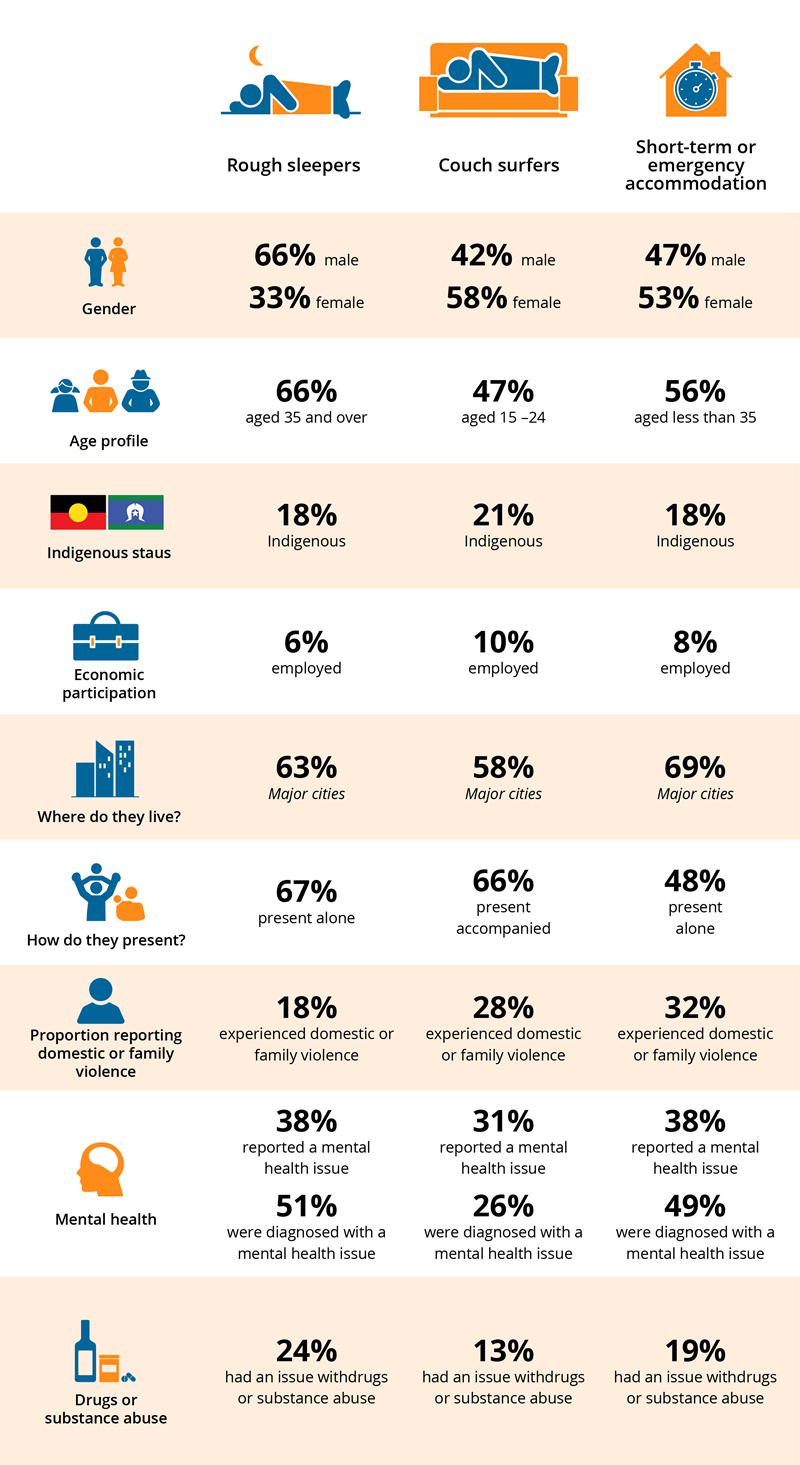Summary in cohort
The key characteristics of each of the three cohorts examined in this web report are outlined below.
Figure 1: Summary of cohort key characteristics

Sources: Rough sleepers, Couch surfers, Short-term/emergency clients.
For the period 2011–12 to 2014–15:
Rough sleepers were typically male, aged 35 years or over and located in Major cities. When compared with the overall SHSC population rough sleepers were more likely to present to services alone and report a mental health issue or have been diagnosed with a mental health issue. They were less likely to be employed or have experienced domestic and family violence, and were more likely to be Indigenous or to report a drug or substance abuse issue. Rough sleepers mainly sought assistance from SHS due to accommodation or financial issues, particularly housing crisis or financial difficulties.
Couch surfers were typically female, aged less than 25 years, and located in Major cities. When compared with the overall SHSC population, couch surfers were less likely to be employed and more likely to be Indigenous. Female couch surfers were most likely to present to services accompanied (by one or more children, with another family member or as part of a group) and were more likely to have experienced domestic or family violence. Male couch surfers were more likely to present alone and to report a drug or substance abuse issue. While accommodation issues are the primary driver for seeking assistance, difficulties with interpersonal relationships including relationship breakdowns and domestic and family violence were the next most common causes for seeking assistance. This may be related to the fact that couch surfers are often young women, and domestic and family violence and family breakdown are key drivers of homelessness among this cohort.
Short-term or emergency accommodation residents were typically female, aged less than 35 years, and located in Major cities. When compared with the overall SHSC population, they were less likely to be employed and more likely to be Indigenous. Short-term or emergency accommodation residents were more likely to present to services accompanied, with females more likely to present with one or more children. Females in short-term or emergency accommodation were also more likely to have ever experienced domestic or family violence, while males were more likely to have reported ever having a current mental health issue or have been diagnosed with a mental health issue.
Where to from here?
A more detailed report on the SHS users outlined in these key findings will be released in the first half of 2017.


